Earlier this year, Washington Governor Jay Inslee signed legislation requiring that oil transported by rail to refineries in the state must meet a reduced “vapor pressure” threshold, the measure of a liquid’s volatility. The law is designed to address a history of oil trains catastrophically catching fire after derailing, including one explosive incident in a small town in Quebec that killed dozens of residents.
North Dakota has been a vocal opponent of Washington’s legislation. Approximately 10 percent of the state’s oil travels daily to Washington’s refineries by rail, primarily from its Bakken formation, and Bakken oil is known to be extremely volatile, described in a report by the Canadian government as more closely resembling gasoline. Not surprisingly, its vapor pressure often exceeds Washington’s new safety standard.
Although the new law is limited in scope—it only applies to new refineries and existing refineries that increase their output above 2018 levels—North Dakota is considering filing a lawsuit based, at least in part, on the Interstate Commerce Clause of the US Constitution, specifically what is known as the “Dormant Commerce Clause.”
This backgrounder explains the origins of the Dormant Commerce Clause and the legal principles guiding its use and then assesses how Washington’s oil train legislation might fare if North Dakota eventually does bring its lawsuit.
What exactly does the Constitution’s Dormant Commerce Clause say?
Trick question! There is no Dormant Commerce Clause in the Constitution. That’s how dormant it is. There is, however, a Commerce Clause that gives Congress the power to regulate commerce “among the several States.”
The “dormant” part arises from the implication that only Congress shall have this power, meaning that states themselves are prohibited from regulating commerce among the states.
Why would the framers of the Constitution want to restrict a state’s authority to regulate commerce (as in, goods and services) within its borders?
In a word, protectionism. Courts have interpreted the Commerce Clause to prohibit a state from favoring its own industries by burdening products that originate elsewhere. The intent is to prevent the “economic Balkanization” that plagued the colonies and early states.
As colorfully observed by a politician at the time:
The king of New York levied imposts upon New Jersey and Connecticut, and the nobles of Virginia bore with impatience their tributary dependence upon Baltimore and Philadelphia. Our discontents were fermenting into civil war.
Instead of civil war, however, frustration with the local taxes imposed on interstate trade helped propel the Constitutional Convention of 1787.
Which means that today, Washington State cannot mandate that all apples entering the state are subject to a 25-cent border tax. That’s anticompetitive and discriminatory (in the commercial sense), a blatant attempt to promote Washington apple growers by raising the price on imports.
For the most part, states retain authority to even-handedly regulate goods and services for legitimate reasons, which is why Washington is free to do things such as ban harmful chemicals produced in other states and require certain professions, such as lawyers and teachers, to meet state-specific licensing requirements.
It’s true that, without those limits, products and services from other states would be more accessible, but the Dormant Commerce Clause is not intended to curtail everything a state does that has an effect on interstate commerce.
In the face of Dormant Commerce Clause challenges, courts have interpreted the Constitution to allow jurisdictions to ban puppy mills, mandate pharmaceutical take-back programs, and prohibit imports that could carry parasites and invasive pests. Again, the aim here is primarily to prevent states from promoting its own economic interests by “discriminating” against the competition.
Washington wants to protect its citizens from hazardous rail cargo, not protect in-state oil producers (of which there are none). So, no problem, right?
Not so fast. Even if the local industry doesn’t benefit from a measure, courts will also consider whether a state has placed an “undue burden” on commerce from other states.
To do that, judges will look at the extent to which a challenged measure interferes with the free flow of commerce balanced against any benefits to the public, such as promoting residents’ health and safety or protecting the environment. This is known as the “Pike” balancing test, named for the legal decision where it first appeared.
Could a court strike down Washington’s safety standards under the Pike balancing test?
In general, the law around the Dormant Commerce Clause is notoriously murky, but courts typically are reluctant to use the balancing test to nullify state and local measures. The burdens must be “clearly excessive” when weighed against the benefits, and judges tend to avoid second-guessing conclusions about health and safety benefits.
In practice, this means that courts only seem interested in striking down policies that have no real benefit, as in a case where Wisconsin failed to provide any evidence of improved public safety to support a regulation requiring that extra-long tractor-trailers have a special permit to use its highways.
Applying the balancing test, courts have rejected Dormant Commerce Clause challenges to arguably more stringent climate measures, including limits on fossil fuel terminals in Portland, Oregon and a prohibition on oil transfers in South Portland, Maine.
Why then would North Dakota even consider bringing a lawsuit based on the Dormant Commerce Clause?
For one thing, it’s an ongoing trend. In recent years, the Dormant Commerce Clause has been the go-to legal claim for fossil fuel interests opposing measures to combat climate change. In fact, in a case that is still being litigated, companies backing the Millennium Bulk coal export terminal on the Columbia River brought a lawsuit based on the Dormant Commerce Clause to challenge Washington’s denial of a critical permit.
Also, lately North Dakota has been touting a study from the US Department of Energy, concluding that vapor pressure does not correlate to the severity of an oil fire. If North Dakota calculates that it could use the study to undercut the asserted benefits of Washington’s law, that could strengthen a claim that the balancing test favors striking down the vapor pressure limits.
Regardless, the Dormant Commerce Clause will likely continue to make its periodic appearances in litigation attacking new climate policies. The federal government’s unrelenting hostility to climate protections has prompted states and localities to try to fill the gap, and oil and gas interests—including those in the White House—will no doubt push back in the courts however they can.
Michael Mayer practiced environmental law in the Northwest for close to a decade and now teaches climate change law at Seattle University School of Law.

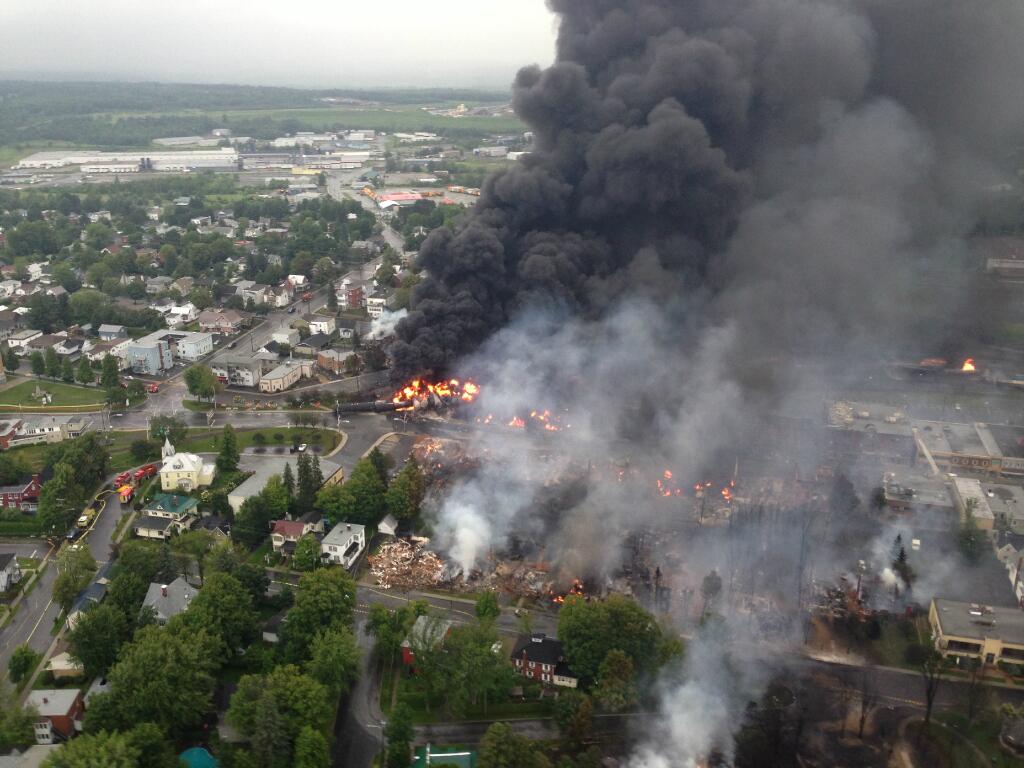
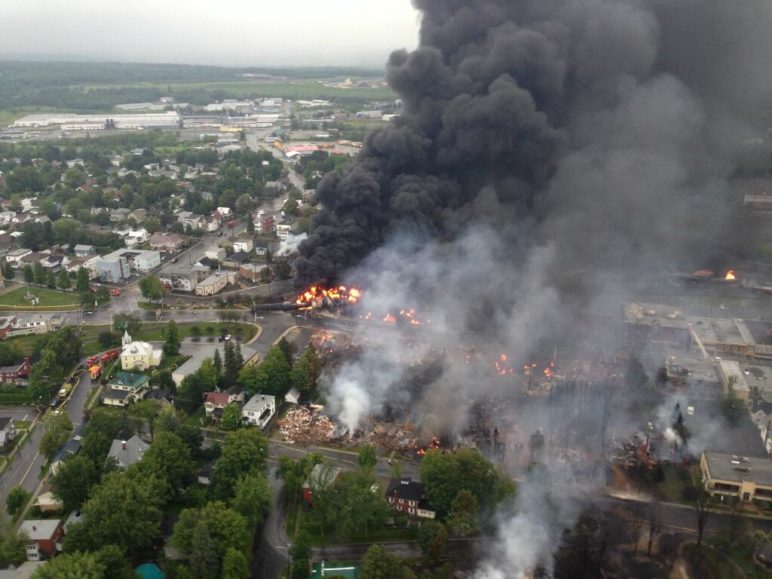


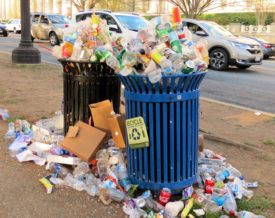

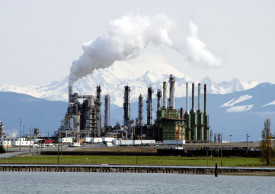
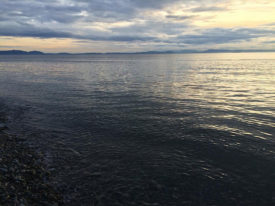


Don Steinke
Thank you Michael Mayer and Sightline!!!!!!!!!!!!!!!!!!!!!!!!!!!!!!
Let’s hope that court would consider the climate benefits associated with not growing the industry. As I understand it, our vapor pressure law does not apply to existing oil train traffic, but only to an increase that exceeds a 10% increase.
The goal is not to short us, but to prevent the conversion of our five refineries into export terminals.
I will share this with State Senator Andy Billig, the prime sponsor of the vapor pressure bill.
Breean Beggs
And actually, Congress expressly authorized states to implement railroad safety laws in instances where either there are no existing national safety standards (there aren’t currently for vapor pressure) or there is a unique local situation that national standards don’t adequately address (Downtown Spokane’s elevated rail tracks through downtown and over the sole source drinking water aquifer. See 49 U.S.C. § 20106 and Union Pac. R. Co. v. California Pub. Utilities Comm’n, 346 F.3d 851, 858 (9th Cir. 2003). And although Washington’s new law won’t be triggered until there is a 10% increase in oil transportation through the state, once it is triggered it will apply to all oil.
Michael Mayer
Thanks for the thoughtful response. The issue of whether Congress authorized states to set their own standards relates to a separate constitutional doctrine known as “preemption,” the question of whether federal law should control over state law. North Dakota and Montana have asked the Dep’t of Transportation to declare that federal law preempts Washington’s vapor pressure threshold. https://www.desmogblog.com/2019/07/25/north-dakota-montana-fight-volatility-bakken-oil-rail
As for the when WA’s law is triggered, the relevant provision is written to apply on a facility-by-facility basis: http://lawfilesext.leg.wa.gov/biennium/2019-20/Pdf/Bills/Session%20Laws/Senate/5579-S.SL.pdf
Michael Mayer
I appreciate the note. It means a lot coming from Sierra Club stalwart Don Steinke (aka, “The Unstoppable Don Steinke”). It’s great to see the work you are doing out of Vancouver.